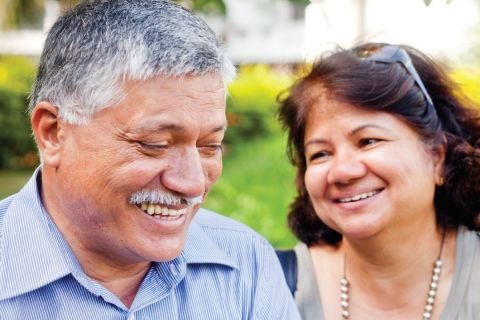Access expanded to COVID-19 antiviral drug
Eligibility for Paxlovid has changed, meaning more seniors can now get the drug.

Key points
Over 60s who have just one health risk for severe disease can now get subsidised antivirals.
This makes the treatment available to a further 160,000 Australians.
Antivirals significantly reduce the risk of hospitalisation and death from COVID-19.
More than 160,000 people aged 60 to 69 now have access to the antiviral treatment Paxlovid thanks to changes to the Pharmaceutical Benefits Scheme (PBS).
The change, from 1 April, was recommended by the independent Pharmaceutical Benefits Advisory Committee (PBAC) and means Australians in this age group with only one risk factor for severe illness – instead of two – can get access to Paxlovid.
The federal government hopes the move will take pressure off hospitals, as cases of COVID increase in the community and especially aged care homes.
Paxlovid and another drug Molnupiravir, which are taken orally, are proven to be effective in preventing severe disease, hospitalisation and death due to COVID.
The new measure means people in their 60s with one risk factor have joined the following groups on the PBS's COVID-19 antiviral eligibility list:
People aged 70 years and over.
People in their 50s with two risk factors (or who have previously been hospitalised with COVID-19).
Aboriginal and Torres Strait Island people aged 30 years and over with one risk factor.
Immunocompromised people aged 18 years and over.
COVID antiviral drugs work best when taken as soon as possible, generally within five days of testing positive or symptom onset.
Health authorities advise people eligible for antiviral treatments to have early discussions with their GP and develop a plan should they test positive.
“It’s important to reinforce that all Australians who are eligible for the oral antivirals, including this new group, make a plan … so that when you receive a positive test, there is a plan of action in place to be able to access the oral antivirals very quickly,” federal health minister Mark Butler said.
“If you are in any of those groups that are eligible for oral antivirals ... they work against all of the new variants.”
For those who aren’t eligible for subsidised antiviral treatments, the cost for a private prescription remains close to $1,000.
COVID-19 cases have begun to climb after levelling off in February, towards the end of Australia's summer Omicron wave. Hospitalisations are also increasing.
Already, antiviral prescriptions have increased by about 40%, and cases in aged care have risen by about 65%, though the latter is lower than the summer peak.
Health authorities are urging people, especially those with health risks, to get their booster vaccinations now.
All adults who have not had a COVID-19 infection or vaccine in the past six months can top up their protection with a booster, irrespective of how many other doses they have had.
Chief Medical Officer Paul Kelly said it was difficult to predict whether there would be another COVID wave this winter.
He said the priority for health authorities remained protecting Australia’s most vulnerable groups, including older people and residents of aged care.
“People are over COVID … but it’s still there. We can’t ignore that there is COVID circulating in the community,” Professor Kelly said.
The federal government is also rolling out a new ad campaign on television, social media and billboards, encouraging Australians to get their 2023 COVID-19 vaccine booster.
Living in residential aged care.
Living with disability with multiple conditions and/or frailty.
Neurological conditions like stroke or dementia and demyelinating conditions such as multiple sclerosis and Guillain-Barre Syndrome.
Chronic respiratory conditions including chronic obstructive pulmonary disease (COPD), moderate or severe asthma.
Obesity or diabetes (type I or II requiring medication).
Heart failure, coronary artery disease, or cardiomyopathies.
Kidney failure or cirrhosis.
Living remotely with reduced access to higher level healthcare.
Past COVID-19 infection episode resulting in hospitalisation.
Further reading: Health Department, Hello Care, ABC, Minister’s statement








